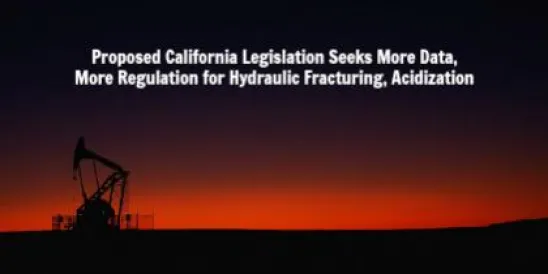Rep. Deb Haaland, D-N.M., is President-elect Joe Biden’s choice to lead the Department of the Interior. The department has jurisdiction over the conservation and development of most federal lands, minerals, and waters, making the appointment of Rep. Haaland important for natural resource companies, including onshore and offshore oil and gas and support companies.
President-elect Biden’s selection of Rep. Haaland to lead Interior is a historic choice, as a Native American person has never been at the helm of this 171-year-old agency or any other federal department. “A voice like mine has never been a Cabinet secretary or at the head of the Department of Interior,” Haaland tweeted upon being selected. “I’ll be fierce for all of us, our planet, and all of our protected land.”[1]
At the time of President-elect Biden’s announcement, Rep. Haaland had just been reelected to her second term. Despite having recorded only a dozen or so votes in her first term related to oil and gas development on federal lands and waters, her voting record shows a clear pattern against oil and gas exploration and development. Rep. Haaland voted for amendments in the Interior appropriations bill that would block development in the Arctic National Wildlife Refuge and the National Petroleum Reserve in Alaska, as well as for bills H.R. 205 and H.R. 1941 that would block offshore development in the Atlantic, the Pacific, and the Eastern Gulf of Mexico Outer Continental Shelf.
Before serving in Congress, Rep. Haaland owned a small business and was subsequently elected to the Laguna Development Corporation Board of Directors, where she oversaw business operations and pushed for earth-friendly business practices. She is a 35th-generation New Mexican and a member of the Pueblo of Laguna, and she also has Jemez Pueblo heritage. According to her congressional website, she started her political career “reaching out to communities [that] are often forgotten during the electoral process”[2] and has a track record of speaking up to ensure local communities, especially tribal communities, have a seat at the table during consultations on how a project might impact the community. As a result, we expect Native American nations will have a stronger voice at Interior as projects are considered for permitting or approval, including new pipeline and oil and gas projects that impact Native American lands.
Rep. Haaland has a history of advocating against energy projects that are not wanted by the local communities. She spent four days at Standing Rock in 2016 offering support and food to those protesting the Dakota Access Pipeline. She has brought this advocacy to Congress by introducing legislation on environmental justice: H.R. 8271, the Environmental Justice Legacy Pollution Cleanup Act.[3] This legislation would authorize appropriations for legacy cleanup projects, but it would also prohibit any further permits in areas defined as “overburdened census tracts,” which have been identified as having “a greater than 100 in 1,000,000 total cancer risk.” She will lead efforts to block development in communities that already play host to industrial development, and we can expect that environmental justice will be at the forefront of every decision, big or small, at Interior.
With regard to oil and natural gas, in a recent interview with The Washington Post, Rep. Haaland said, “I come from New Mexico. It’s a big gas and oil state. And I care about every single job.”[4] But she added, “We don’t want to go back to normal, right? We don’t want to go back to where we were because that economy wasn’t working for a lot of people.”[5]
While the congresswoman seems to understand the importance of oil and gas development to the state’s economy, she believes that “dependence on finite and scarce resources—like oil—hurts workers, the middle class, and our economy by continuing to drive profits to the few. Ignoring climate change sets up our students and workforce for failure by not educating them about the needs of the future.”[6]
Based on her public statements and congressional record, we expect Rep. Haaland will be laser-focused on renewable energy, shifting resources away from oil and natural gas on public lands, and ensuring communities have their seat at the Interior table.
The following are additional policy issues to expect within the first 100 days in a Haaland-led Interior:
-
Cleanup of contaminated sites, including oil and gas decommissioning, hardrock mining and reclamation, and orphaned well and abandoned mine cleanup
-
Implementing 30 x 30, a national goal of conserving at least 30% of the land and ocean of the United States by 2030, thus creating more opportunities for recreational uses and wildlife and cultural site protections
-
Focusing on solar, wind, and renewable energy projects on federal lands
-
Initiatives to bolster tribal communities and increase the influence of tribal views on new oil and gas and industrial infrastructure projects





 />i
/>i

